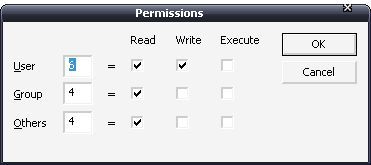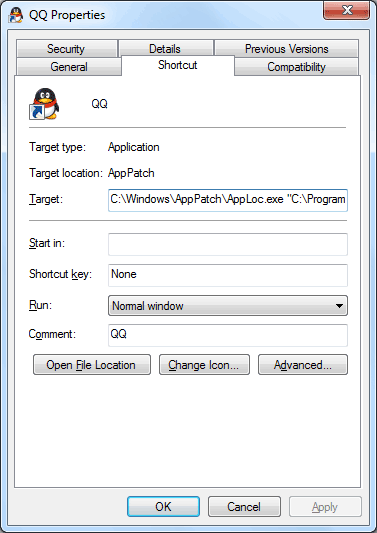Windows 7 Applocale
AppLocale is a tool for Windows XP and Windows Server 2003 by Microsoft. It is a launcher application that makes it possible to run non-Unicode (code page-based) applications in a locale of the user's choice. Since changing the locale normally requires a restart of Windows, AppLocale is especially popular with western users of Asian applications. The program installs itself in a subfolder of the Windows directory called 'AppPatch', and when launched prompts the user for an executable to run and the desired codepage. It can also create a shortcut in the start menu, located under Microsoft AppLocale, however you will be prompted by AppLocale before the program's launch.
AppLocale works with many, but not all non-Unicode applications, and as such is still inferior to really setting the particular locale systemwide. In particular, it requires fonts for the particular locale to be installed on the system it runs on, and Administrator privileges to be installed (though not to be used). It is not officially supported for use with Windows Vista or Windows 7; a person who is using Vista or 7 must either alter the system locale manually, or use an available unofficial workaround to install the AppLocale utility (see below).
AppLocale is not included in normal retail versions of Windows, but is available for free download from Microsoft's website.
- 1Bugs
What is AppLocale: Microsoft AppLocale is a tool that can run Non-Unicode applications in windows. Which means now you do not need to worry about the characters and font. Working of Microsft AppLocale: The software works in a way that it represents itself as an emulator which can run the character in windows that are not in it. Changing to Japanese locale on Windows 7. Applocale is still works in windows 7 if you use xp compatibility mode their is also a tool called “Vistalizator” that can allow you to instal language packs in the basic and home premium versions of windows 7. You can also use SBapplocale if your good with the command line. But using a language. AppLocale is a program that helps you run a non-unicode program in a different locale to what user’s windows system is currently running. For example, if you are using a version of Japanese version of Windows system, but you are trying to run a Chinese Version of particular software, AppLocale can help you on this regard. Mar 24, 2018 Applocale windows 10 – Microsoft Applocale. By Doina Published February 6, 2018 Updated March 24, 2018. Spread the love. What is AppLocale: Microsoft AppLocale is a tool that can run Non-Unicode applications in windows. Which means now.
Bugs[edit]
Compatibility[edit]
Running AppLocale on Windows Vista or Windows 7 is not officially supported and it fails to install on default configurations of these OS if attempted; however there is a workaround to install it (which requires starting apploc.msi file from command prompt under administrative privileges). This workaround also works for Windows 8 and Windows 8.1. However, it no longer works on Windows 10.
AppLocale cannot run on Windows 2000 platforms.
In September 2016, Microsoft removed all pages referring to Applocale, including the official download, from the Microsoft website, thereby officially discontinuing all support (since it was only ever supported officially on Windows XP and Windows Server 2003). However, it can still be retrieved from the Internet Archive.[1]
Mojibake issue[edit]
AppLoc.tmp in the AppPatch folder (%windir%apppatch) causes a Mojibake issue of Windows Installer. Unofficial solutions of this problems include a modified version of the program, called pAppLocale provided by Hung-Te Lin (林弘德 piaip) for free,[2][3] or blanking the AppLoc.tmp file, then setting it to read only.
References[edit]
Parts of this article are from the Microsoft AppLocale article from the Chinese Wikipedia
- ^'applocale.msi - direct download link'. Internet Archive. Archived from the original on January 10, 2015. Retrieved May 19, 2017.CS1 maint: BOT: original-url status unknown (link)
- ^'piaip'. Archived from the original on 2004-11-18. Retrieved 2011-01-25.
- ^pAppLocale
External links[edit]
Windows 7 Applocale Download

Applocale Windows 7 免安装
Applocale
